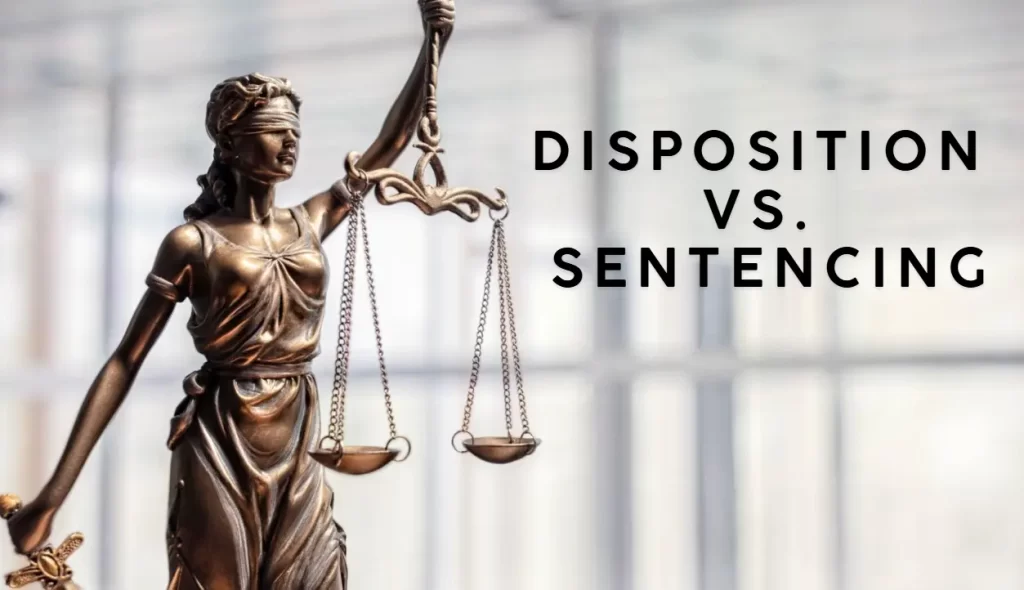Criminal background checks help employers make informed hiring decisions. AMS Inform provides expert guidance on interpreting legal terms and outcomes.
What is Disposition in Criminal Cases?
A disposition shows the final outcome or resolution of a criminal case. When reviewing background checks, employers need to understand what different dispositions mean.
Common Types of Dispositions
| Disposition Type | Description | Impact on Employment |
| Acquitted | Found not guilty at trial | Generally minimal impact |
| Dismissed | Case terminated by court/prosecutor | Limited consideration needed |
| Charges Dropped | Prosecution declined to pursue | Usually favorable outcome |
| Pending | Case still open/under investigation | May require follow-up |
| Deferred | Delayed for probation/treatment | Case-by-case review |
| Sealed/Expunged | Records restricted/deleted | Not visible on checks |
Disposition Terms
A disposition determines whether someone was found guilty, not guilty, or had other case outcomes. Key disposition terms include:
- Acquittal: The defendant is found not guilty by a judge or jury
- Dismissal: The prosecutor or judge terminates the case
- Deferred Adjudication: Resolution delayed pending completion of requirements
- Pending: Case remains open and under investigation
- Sealed/Expunged: Records restricted from public access
Need help interpreting disposition terms? Contact AMS Inform for expert guidance
What Does Sentencing Mean?
Sentencing refers to the specific punishment imposed after a guilty verdict or plea. Common sentences include:
- Fines and monetary penalties
- Probation periods
- Community service hours
- Jail or prison time
- Treatment programs
Types of Criminal Sentences
| Sentence Type | Description | Duration |
| Determinate | Fixed prison term | Set number of years |
| Indeterminate | Flexible range | Minimum to maximum |
| Suspended | Delayed pending probation | Varies by case |
| Intermittent | Allows work/school release | Periodic confinement |
AMS Inform helps employers understand how different sentences may impact hiring decisions. Contact us to learn more about our background screening solutions.
Key Differences Between Disposition and Sentencing
Understanding how disposition differs from sentencing helps employers make informed hiring decisions. AMS Inform breaks down these crucial legal concepts:
Timing and Purpose
| Aspect | Disposition | Sentencing |
| When it Occurs | At case conclusion | After guilty verdict/plea |
| Primary Purpose | Determines outcome | Sets punishment |
| Legal Effect | Resolves charges | Implements penalties |
| Required Elements | Judge’s ruling | Conviction first |
Impact on Background Checks
Different dispositions appear differently on background checks:
- Convictions show up indefinitely unless restricted by state law
- Non-convictions (dismissals, acquittals) limited to 7-year reporting
- Pending cases require follow-up and monitoring
- Sealed/expunged records shouldn’t appear
Need help interpreting background check results? Contact AMS Inform’s screening experts
Criminal Records
What Shows Up on Reports
Criminal background checks typically reveal:
- Case disposition date and type
- Severity of offense (misdemeanor/felony)
- Sentencing details if convicted
- Current status (closed/pending)
Compliance Requirements
AMS Inform ensures background checks follow:
- Fair Credit Reporting Act (FCRA) rules
- State reporting restrictions
- Ban the Box regulations
- Industry-specific requirements
Making Informed Hiring Decisions
Best Practices
When reviewing dispositions and sentences:
- Consider job relevance
- Follow consistent evaluation criteria
- Document decision rationale
- Maintain confidentiality
Legal Considerations
Employers must comply with:
- Equal Employment Opportunity Commission (EEOC) guidelines
- State fair hiring laws
- Industry regulations
- Local ordinances
Get expert guidance on compliant hiring decisions from AMS Inform
Why Partner with AMS Inform?
Expert Background Screening
- Accurate criminal record interpretation
- Compliance with federal and state laws
- Clear explanation of dispositions and sentences
- Fast turnaround times
Dedicated Support
- Expert guidance on legal terminology
- Help understanding background check results
- Updates on changing regulations
- Industry-specific compliance assistance
Get expert help interpreting criminal records from AMS Inform
FAQs About Disposition and Sentencing
Is disposition the same as conviction?
No. A disposition shows the final outcome of a case, while a conviction is just one possible disposition type. Other dispositions include acquittal, dismissal, or deferral.
Can a case have disposition without sentencing?
Yes. Cases resulting in acquittal, dismissal, or dropped charges have a disposition but no sentence. Sentencing only follows guilty verdicts.
How long after disposition does sentencing occur?
Sentencing typically happens within a few weeks after a guilty disposition. The exact timing varies by jurisdiction and case complexity.
Disclaimer
The information provided about disposition and sentencing serves educational purposes only and does not constitute legal advice. For specific questions about background screening practices or legal obligations, please consult qualified legal counsel. While AMS Inform provides accurate information, laws and regulations vary by jurisdiction. Your situation may require different considerations.
Contact AMS Inform for guidance on compliant background screening solutions.


















